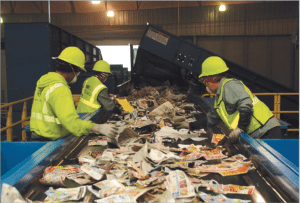 A mixture of urban, suburban and rural communities can create substantial challenges for a municipal recycling program that includes them all.
A mixture of urban, suburban and rural communities can create substantial challenges for a municipal recycling program that includes them all.

 Colin Staub was a reporter and associate editor at Resource Recycling until August 2025.
Colin Staub was a reporter and associate editor at Resource Recycling until August 2025. A mixture of urban, suburban and rural communities can create substantial challenges for a municipal recycling program that includes them all.
A mixture of urban, suburban and rural communities can create substantial challenges for a municipal recycling program that includes them all.
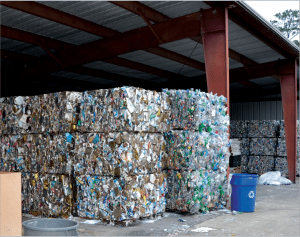 One might assume materials recycling takes a backseat to other priorities on a military installation, but for well over a decade a Georgia military jurisdiction has proven otherwise.
One might assume materials recycling takes a backseat to other priorities on a military installation, but for well over a decade a Georgia military jurisdiction has proven otherwise.
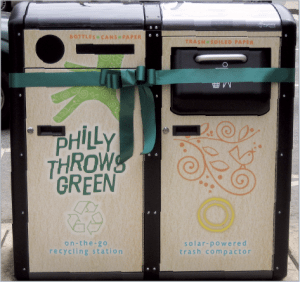 In a city where city collection crews service 540,000 households, thinking big is the norm. That became abundantly clear when the city of Philadelphia announced its plan to send nothing to disposal by 2035.
In a city where city collection crews service 540,000 households, thinking big is the norm. That became abundantly clear when the city of Philadelphia announced its plan to send nothing to disposal by 2035.
 Municipal programs are often short on funds, and it’s easy for recycling outreach to fall on the back burner amid budget constraints. One municipality in New England recently took action on the issue by collaborating with a plastics industry initiative.
Municipal programs are often short on funds, and it’s easy for recycling outreach to fall on the back burner amid budget constraints. One municipality in New England recently took action on the issue by collaborating with a plastics industry initiative.
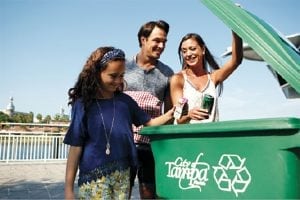 Sometimes a municipal recycling program’s biggest impact is abundantly clear.
Sometimes a municipal recycling program’s biggest impact is abundantly clear.
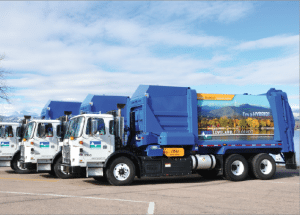 A mid-sized Colorado municipality has achieved enviable diversion results as its program has progressed for the past 25 years. One key to its success? Early adoption of a pay-as-you-throw initiative, according to local officials.
A mid-sized Colorado municipality has achieved enviable diversion results as its program has progressed for the past 25 years. One key to its success? Early adoption of a pay-as-you-throw initiative, according to local officials.
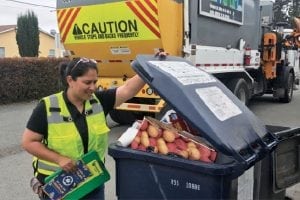 Although it’s often called the strawberry capital of the world, Watsonville, Calif. has some recycling initiatives that set it apart as well.
Although it’s often called the strawberry capital of the world, Watsonville, Calif. has some recycling initiatives that set it apart as well.
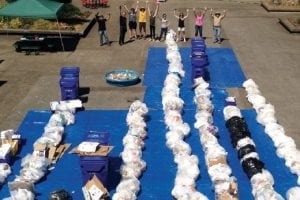 In the Portland, Ore. metropolitan area, no municipal recycling program is an island. Each works with its neighboring communities as part of a regional “wasteshed,” sharing diversion goals, tactics and resources.
In the Portland, Ore. metropolitan area, no municipal recycling program is an island. Each works with its neighboring communities as part of a regional “wasteshed,” sharing diversion goals, tactics and resources.
 It’s hard to argue with data, and in one Northeast community, the numbers don’t lie: Natick, Mass. has increased diversion by 14 percentage points since implementing a system to add financial incentives to recycling.
It’s hard to argue with data, and in one Northeast community, the numbers don’t lie: Natick, Mass. has increased diversion by 14 percentage points since implementing a system to add financial incentives to recycling.
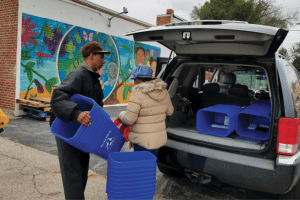 In the city of St. Louis, a relatively young recycling program has gone all-in on outreach and education efforts. And local residents have responded with enthusiasm for the city’s diversion initiatives.
In the city of St. Louis, a relatively young recycling program has gone all-in on outreach and education efforts. And local residents have responded with enthusiasm for the city’s diversion initiatives.
